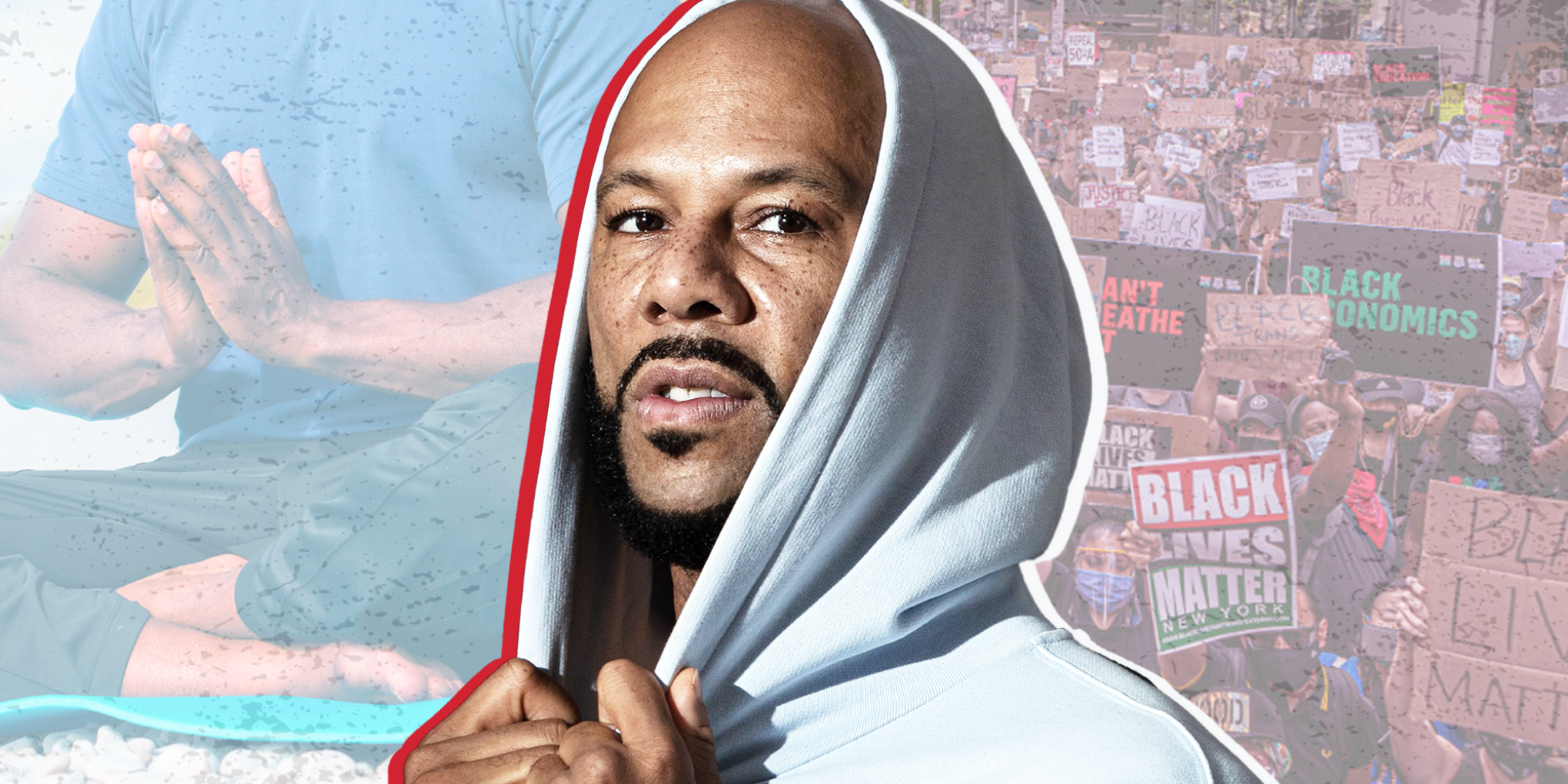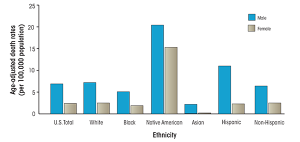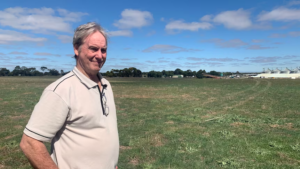“Part of getting the world better is getting you better.”
During the coronavirus pandemic, Common, the Oscar-winning songwriter, rapper, and activist was watching the news and he didn’t like what he saw: fear-based conversations and divisiveness. Meanwhile, he was working hard to renew himself and stay in a good mental space. “I understood that some people were feeling the weight of the moment, but I also thought, What are the things that are helping me say in a positive mindset? Spirituality, fitness, eating healthy meals consistently, and I was meditating more than I ever had before,” he said.
Out of this came Com&Well, a new 6-episode You Tube series that features lessons from people he relies on to support his own physical and mental fitness. I caught up with Common to discuss how he got started taking care of his mental and physical wellness, and his hopes for helping you out with it, too.
Making the First Healthy Moves
Gregory Brown: What inspired your own wellness journey?
Common: I was like 22 years old and people were exposing me to a healthy lifestyle. Being around my brothers who were Muslim and non-pork eaters, who said: You shouldn’t eat pork; it ain’t good for you. Being around enough people who told me: Hey, man, there’s a better way of living. Then, I made a decision not to eat beef anymore. Funny enough, KRS-One had a song called “Beef,” (laughs) so I want to thank KRS, too. What our communities need is people who they connect with and who they see themselves in so the lifestyle doesn’t feel so foreign.
GB: I’m a Black man, so I know that sometimes there can be some jokes and pushback even in our own family, especially with any discussions about being vegan or vegetarian. Did you run into any of that?
C: (Laughs) Aw, man. When I first came around my family and talked about being vegetarian, they were still trying to slide in some turkey meat, or beef or pork even in the greens. My mother what like “What are you doing?” but you have to understand that part of the way they want to show love is just cooking for you, and they cook what they know is good. It takes time and that’s one thing that I want to let people know. It’s a process. I’m not saying that everyone has to be a vegetarian, but it’s about paying attention to your diet, seeing what’s clean and seeing how your body feels. Now my mother cooks vegetarian food that is incredibly good.
GB: When you changed your diet, did your mind feel any different?
C: 100%. I knew myself better. I felt stronger in the mind, clearer. I felt like I was making decisions better, and I’m a Pisces, so I’m indecisive a lot. I felt like I could see things from a higher level. I really started eating a healthier diet because I wanted to feel better. When I changed my diet, I felt it, man.
GB: Wellness is personal for both of us; not only am I a psychiatrist, but I have also overcome depression and I believe that developing a yoga practice played a significant role in my own recovery.
C: Similar to you, I was going through a really tough time in my life and a woman in my acting class took me to yoga and it was healing for me. At first it felt a little hard and I was cynical about it, but I was hurting and I was open to anything that might help. I started opening myself up in the yoga class, and by the time the class finished I was sweating the pain away and I felt new. The issues obviously didn’t go away forever, but in that moment, I felt good and I took that moment and moved from there.
Why It’s So Important to Stay on It Now
GB: We’re living in a time of civil unrest; how can we stay engaged in the struggle for racial justice while still taking care of our mental health?
C: Mental health is essential to social change and racial justice, because if we don’t take care of our mind, then how can we go out there and be full for the Movement? It can actually weigh down on you whether you’re an activist or not. Personally, I have my therapy sessions and I feel better—I need to do that for myself, so I can go out and do what I need to do for the world. Part of getting the world better is getting you better. Self-care is part of the fight for racial justice.
GB: What keeps you awake, inspired, and hopeful?
C: I believe that God’s vision for us is to have a happy life, so knowing that, I’m always hopeful. That doesn’t mean I don’t feel the pain, disappointment, and the anger. One of the things I try to do to cope is similar to a food analogy; I put good things in my body, I don’t keep digesting stuff like: The world is ending. I don’t speak those things, because there’s power in our words. You also have to take steps towards happiness, joy, or healing, meaning you have to find yoga, and you have to find meditation, and exercise, and healthier food, and scriptures or mantras.
GB: What do you want the lasting impact of Com&Well to become?
C: I hope that some young kids who are feeling stressed out might find something in diet, or start trying to eat more fish and vegetables. Or, a Latino kid or even a poor white kid or a black kid in whatever city in this country would say: Man, I might think about meditating. I want Com&Well to have the type of effect for others that KRS had on me.
This interview has been edited for clarity and style
Subscribe to Men’s Health
amazon.com
$6.00
Try 200+ at home workout videos from Men’s Health, Women’s Health, Prevention, and more on All Out Studio free for 14 days!
Gregory Brown: What inspired your own wellness journey?
C ommon: I was like 22 years old and people were exposing me to a healthy lifestyle. Being around my brothers who were Muslim and non-pork eaters, who said: You shouldn’t eat pork; it ain’t good for you. Being around enough people who told me: Hey, man, there’s a better way of living. Then, I made a decision not to eat beef anymore. Funny enough, KRS-One had a song called “Beef,” (laughs) so I want to thank KRS, too. What our communities need is people who they connect with and who they see themselves in so the lifestyle doesn’t feel so foreign.
GB: I’m a Black man, so I know that sometimes there can be some jokes and pushback even in our own family, especially with any discussions about being vegan or vegetarian. Did you run into any of that?
C: (Laughs) Aw, man. When I first came around my family and talked about being vegetarian, they were still trying to slide in some turkey meat, or beef or pork even in the greens. My mother what like “What are you doing?” but you have to understand that part of the way they want to show love is just cooking for you, and they cook what they know is good. It takes time and that’s one thing that I want to let people know. It’s a process. I’m not saying that everyone has to be a vegetarian, but it’s about paying attention to your diet, seeing what’s clean and seeing how your body feels. Now my mother cooks vegetarian food that is incredibly good.
GB: When you changed your diet, did your mind feel any different?
C: 100%. I knew myself better. I felt stronger in the mind, clearer. I felt like I was making decisions better, and I’m a Pisces, so I’m indecisive a lot. I felt like I could see things from a higher level. I really started eating a healthier diet because I wanted to feel better. When I changed my diet, I felt it, man.
GB: Wellness is personal for both of us; not only am I a psychiatrist, but I have also overcome depression and I believe that developing a yoga practice played a significant role in my own recovery.
C: Similar to you, I was going through a really tough time in my life and a woman in my acting class took me to yoga and it was healing for me. At first it felt a little hard and I was cynical about it, but I was hurting and I was open to anything that might help. I started opening myself up in the yoga class, and by the time the class finished I was sweating the pain away and I felt new. The issues obviously didn’t go away forever, but in that moment, I felt good and I took that moment and moved from there.
GB: We’re living in a time of civil unrest; how can we stay engaged in the struggle for racial justice while still taking care of our mental health?
C : Mental health is essential to social change and racial justice, because if we don’t take care of our mind, then how can we go out there and be full for the Movement? It can actually weigh down on you whether you’re an activist or not. Personally, I have my therapy sessions and I feel better—I need to do that for myself, so I can go out and do what I need to do for the world. Part of getting the world better is getting you better. Self-care is part of the fight for racial justice.
GB: What keeps you awake, inspired, and hopeful?
C: I believe that God’s vision for us is to have a happy life, so knowing that, I’m always hopeful. That doesn’t mean I don’t feel the pain, disappointment, and the anger. One of the things I try to do to cope is similar to a food analogy; I put good things in my body, I don’t keep digesting stuff like: The world is ending. I don’t speak those things, because there’s power in our words. You also have to take steps towards happiness, joy, or healing, meaning you have to find yoga, and you have to find meditation, and exercise, and healthier food, and scriptures or mantras.
GB: What do you want the lasting impact of Com&Well to become?
C: I hope that some young kids who are feeling stressed out might find something in diet, or start trying to eat more fish and vegetables. Or, a Latino kid or even a poor white kid or a black kid in whatever city in this country would say: Man, I might think about meditating. I want Com&Well to have the type of effect for others that KRS had on me.
This interview has been edited for clarity and style




